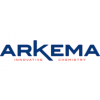Snabbfakta
-
- London
Ansök senast: 2025-01-10
Research Associate in Cathode Development for Lithium-Sulfur Batteries
The is seeking a Research Associate to join the second phase of the Faraday Institution’s on cathode development for lithium-sulfur batteries. The project involves multiple research groups across different universities and presents a unique opportunity to contribute to the exciting work of the Faraday Institution which aims to place the UK at the forefront of the global battery revolution.
Compared with Li-ion batteries, Li-S cells store more energy per unit weight and can operate in a wider operating temperature range. They may also offer safety and cost improvements. Yet the widespread use of Li-S faces major hurdles, which stem from sulfur’s insulating nature, migration of discharge products leading to the loss of active material, and degradation of the metallic lithium anode. Scientists and engineers need to know more about how the system performs and degrades in order to overcome current limitations in the power density and lifespan of Li-S cells that could unlock their use.
In this project, you will work on the development of effective sulfur cathode scaffolds for lithium-sulfur batteries, based on electrospun carbon materials and novel S/C composites, supported by modelling and characterisation efforts from the other work packages. The project combines fundamental research at material and cell level, with a view to supporting scaling up to ensure the work conducted has the potential for direct industrial impact. Your tasks will involve materials synthesis and electrode design, surface and structural characterisation of the materials, and electrochemical testing of these systems in coin and pouch cell configurations. Additionally, in situ characterisation techniques will be employed to investigate the sulfur conversion mechanisms, evolving interfaces, and degradation occurring inside the cell to enable optimisation of materials and cell configurations. The best performing materials will be combined with the anodes and electrolytes developed across other work packages for further optimisation.
Good communication skills and the ability to write high quality publications.













